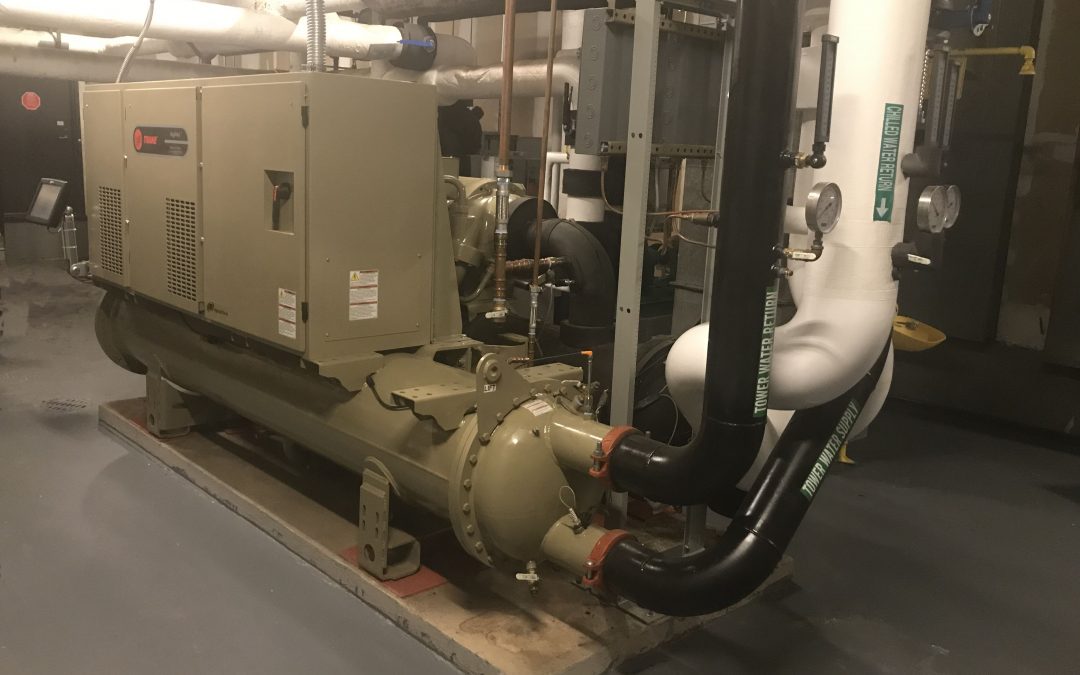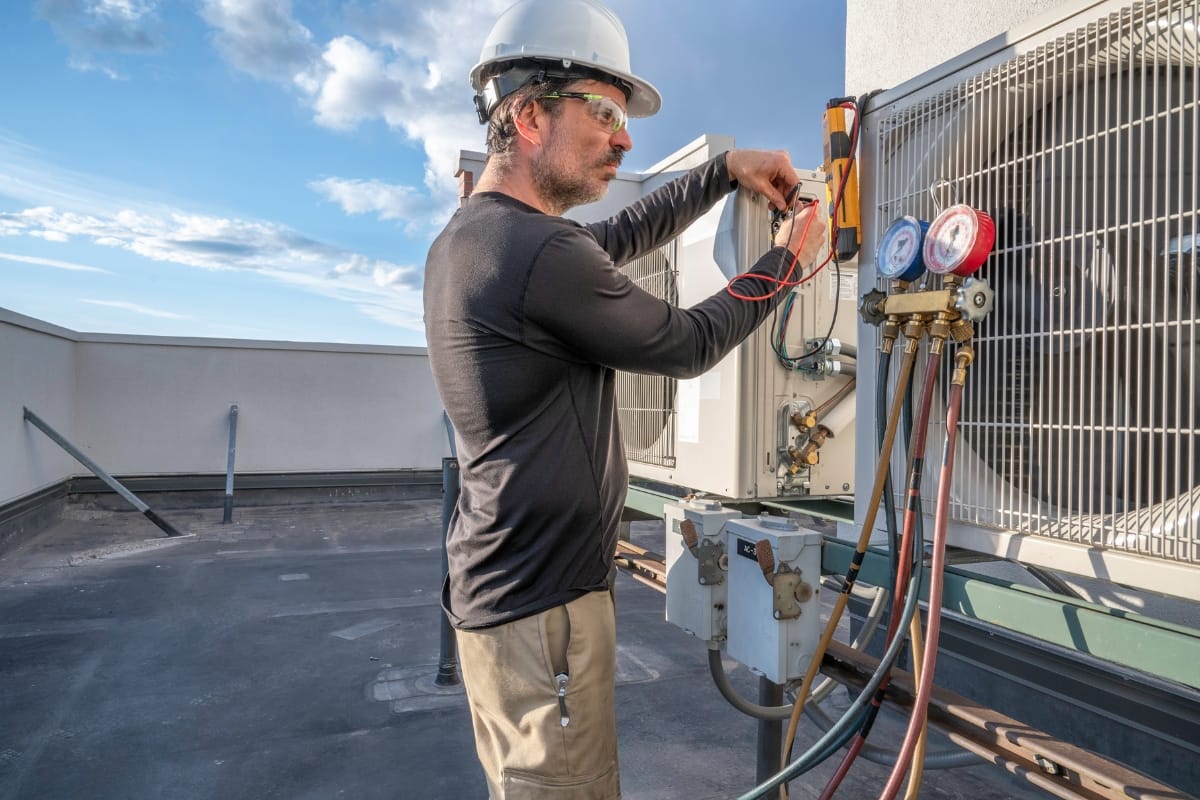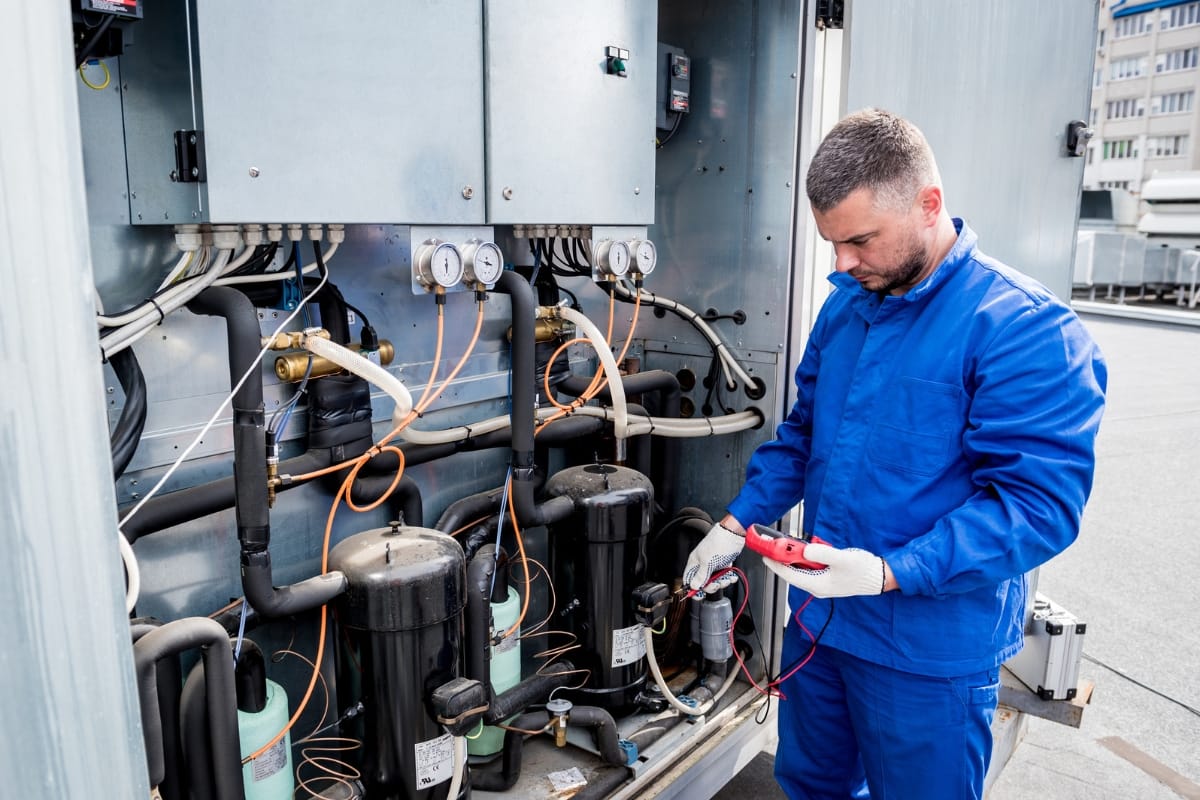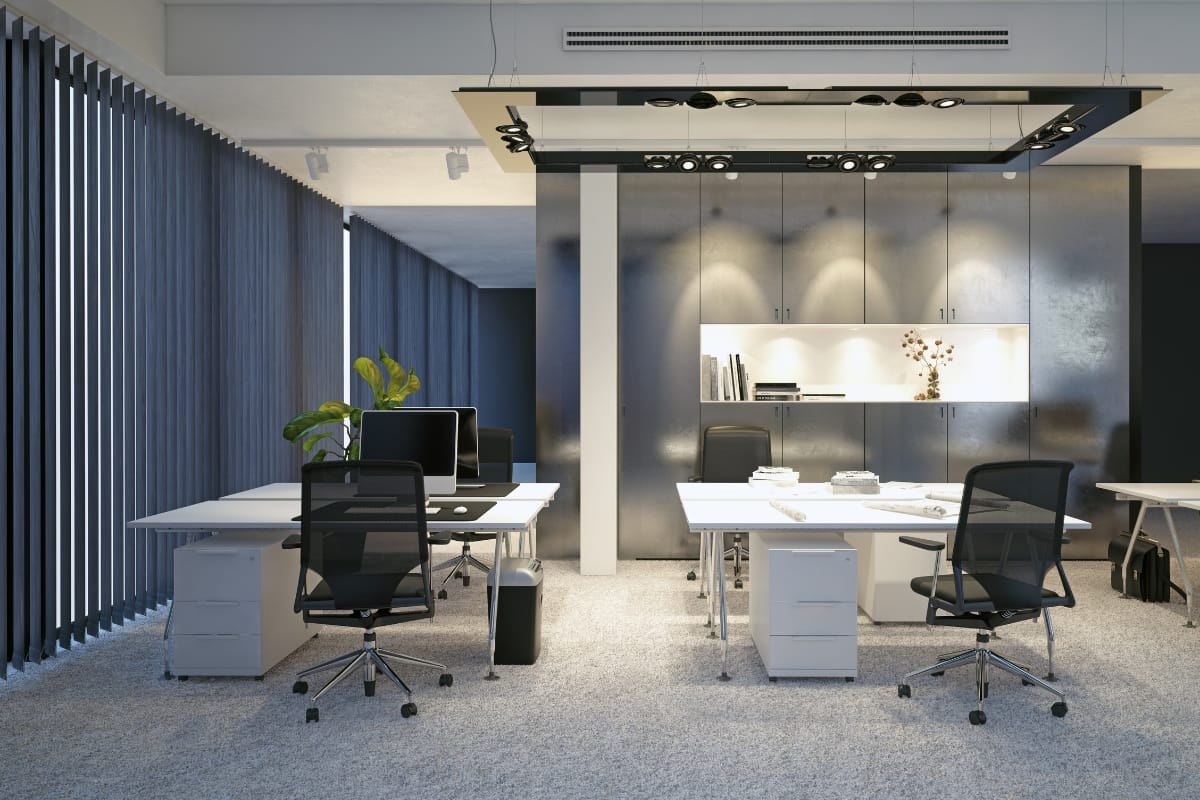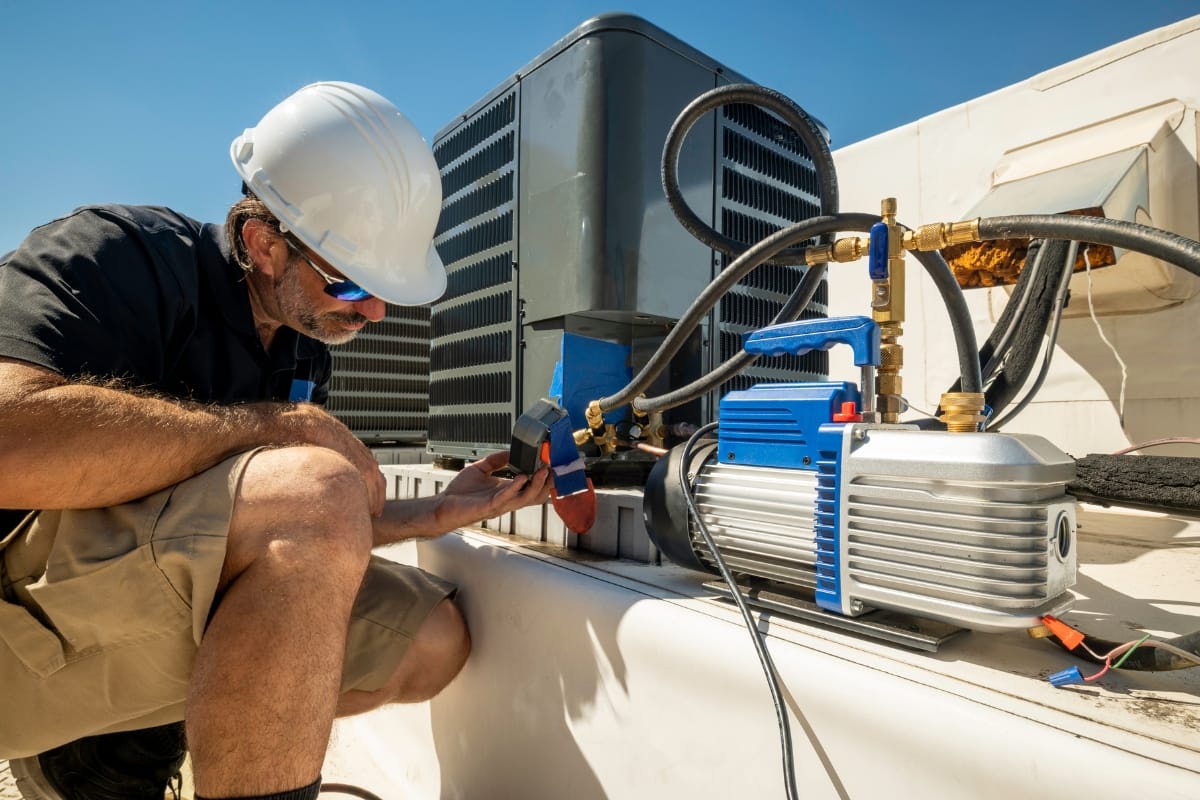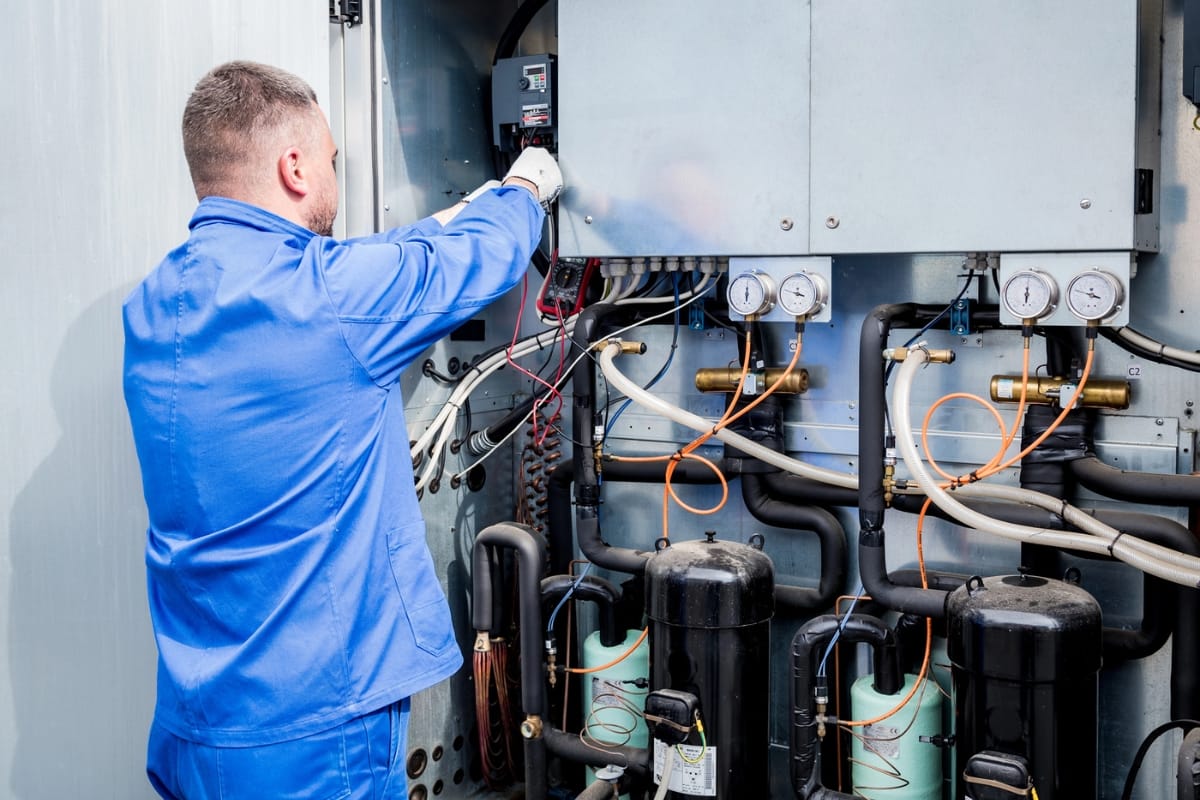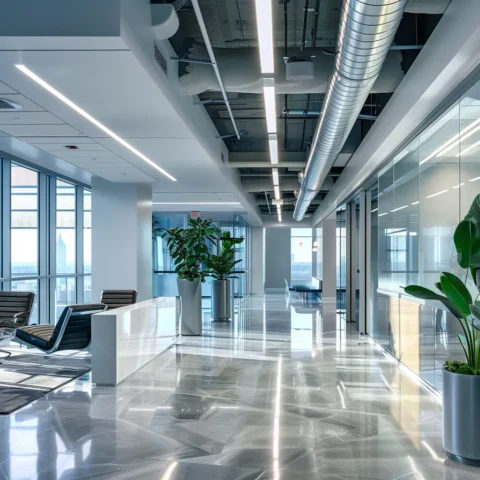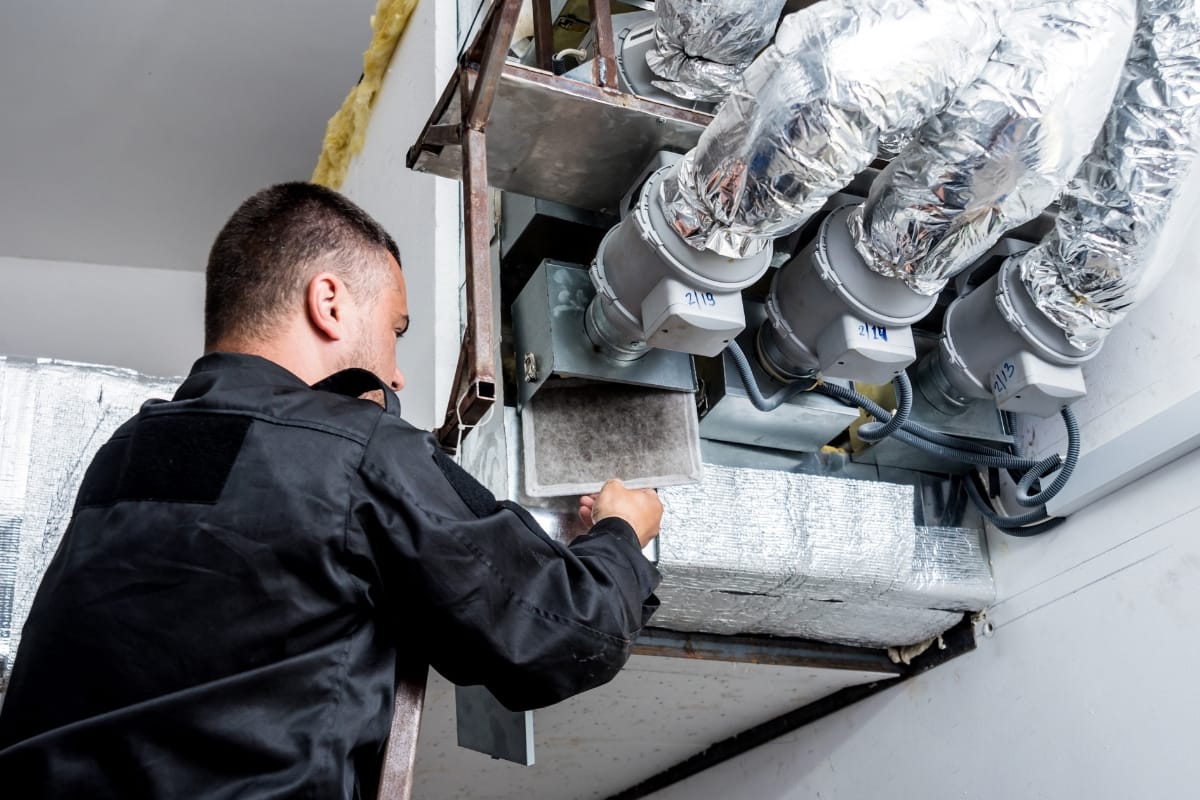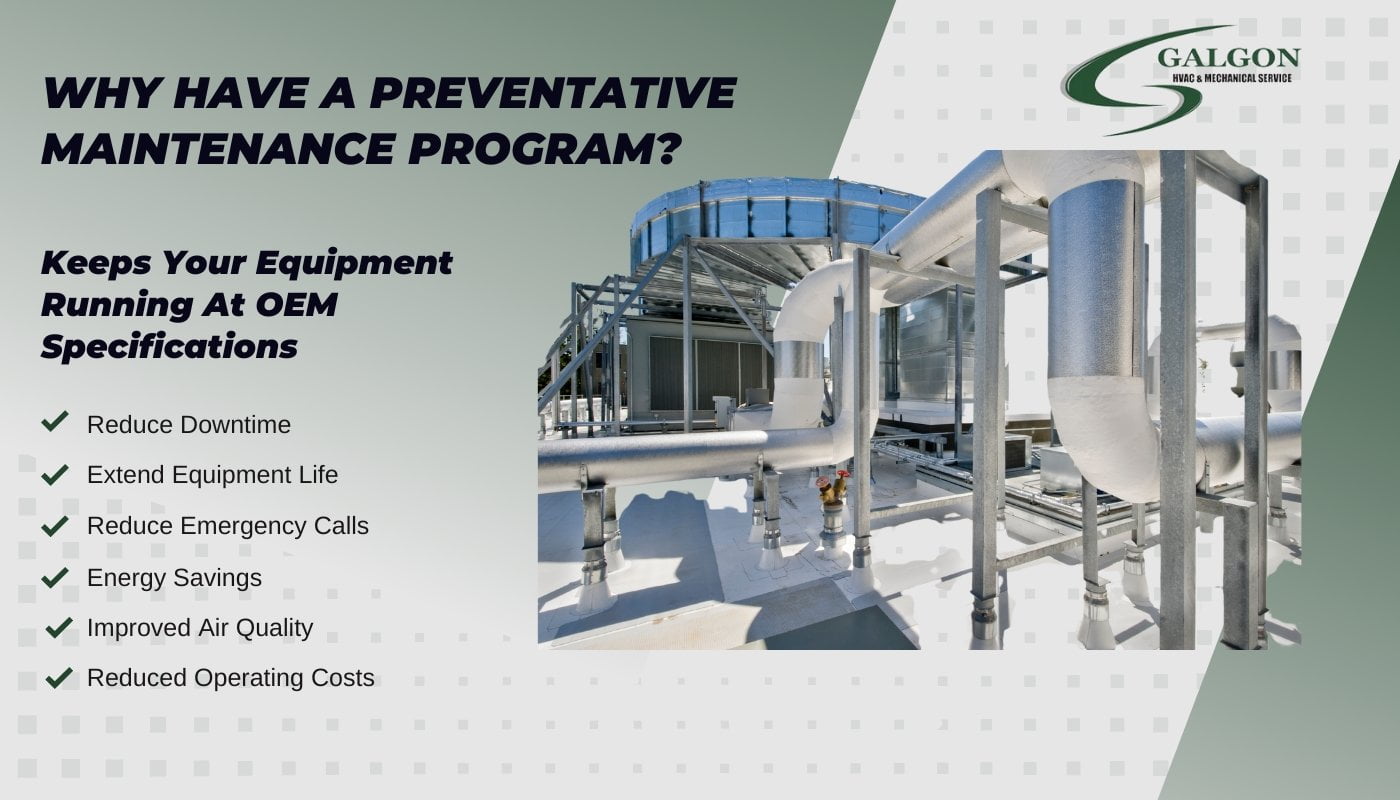With the ever-increasing cost of energy and a growing need to keep a business’s premises cool, many companies have looked to reducing the amount of electricity they use to maintain the temperature. If a business is looking to find the most efficient and cost-effective way to cool their building, they will likely be considering installing either a chilled water system or air conditioning HVAC system.
Both air conditioning and chilled water systems are common ways to cool commercial buildings, but which option is the better choice? To help make this decision easier, this blog post looks at the pros and cons of each cooling system, and compares the two, examining their respective advantages and disadvantages for commercial businesses. By the end of this post, you will have a good idea of which system is best for your business’s needs.
Overview of Chilled Water Systems
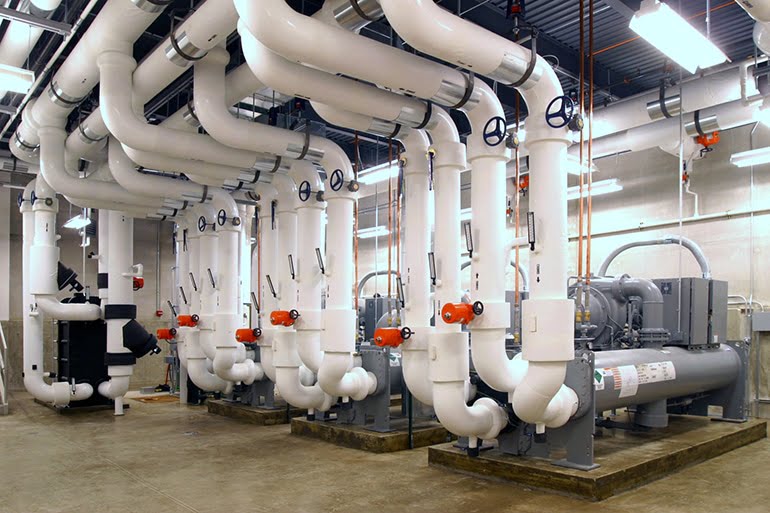
When it comes to cooling a commercial building, one of the most common solutions used is a chilled water system. This system works by drawing in a steady stream of cold water and then circulating it throughout the building. The cooling effect comes from the heat transfer between the warmer air inside the building and the colder water that is being circulated. It’s a reliable and efficient way to cool down large spaces without taking up too much energy or resources.
Chilled water systems rely on a number of components, including chillers—which are machines that cool the water; cooling towers—which are used to dissipate excess heat; and pumps—which are used to circulate the cold water throughout the building. Additionally, a chilled water system requires a well-insulated piping system to ensure that the cold water is not lost in transit. All of these components come together to form a chilled water system that can effectively cool large commercial buildings.
Overview of Air Conditioning
Air conditioning is the process of cooling and dehumidifying the air in a particular space to create a more comfortable living or working environment. This is most commonly accomplished through the use of an air conditioning unit, which is typically powered by electricity or natural gas. In addition to cooling the air, modern air conditioning systems can also help regulate humidity levels, improve air quality, and reduce allergens. Air conditioning systems are widely used in both residential and commercial spaces to achieve efficient climate control.
Comparing Chilled Water Systems vs Air Conditioning
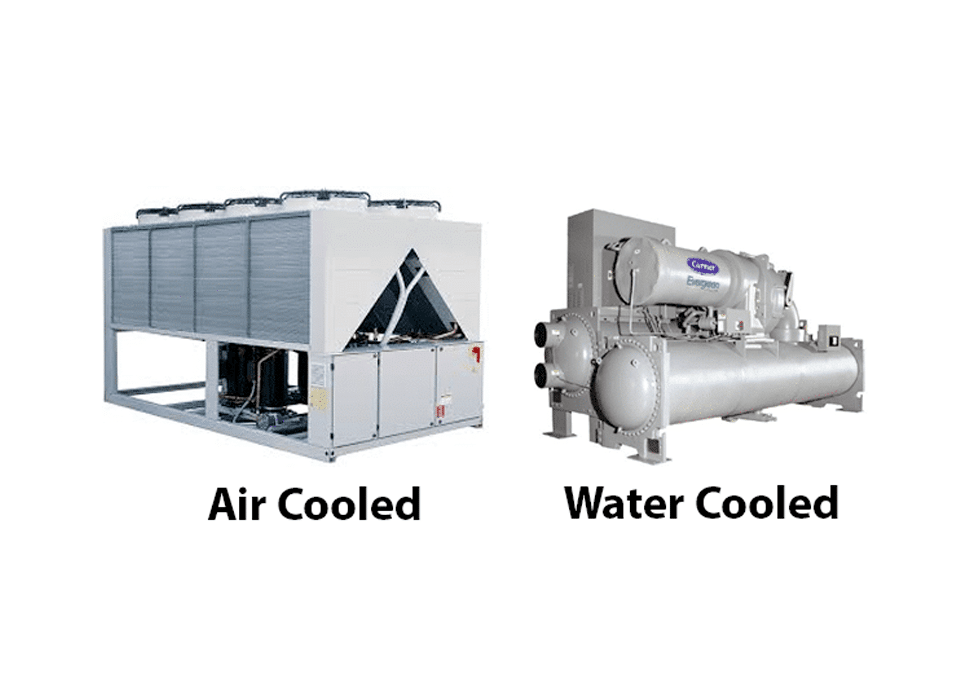
When considering the appropriate climate control system for your commercial business, it’s important to understand the difference between air conditioning and a chilled water system. While both systems provide effective air cooling, they have different components and key benefits.
An air conditioning system operates by circulating a refrigerant such as Freon through a set of coils, while a chilled water system utilizes a network of pumps and pipes, and a chiller to cool the air. Both systems can be used to maintain the temperature and moisture content of the air in the space, but there are some distinct differences that must be taken into consideration depending on the size and type of facility being cooled.
Air conditioning systems are essential for maintaining a comfortable indoor environment, particularly during hot weather. They offer numerous benefits, including improved air quality, humidity control, and enhanced productivity. Modern air conditioners come equipped with filters that remove dust, allergens, and pollutants, ensuring a healthier living or working space. By reducing humidity levels, air conditioners prevent the growth of mold and mildew, contributing to a cleaner indoor environment.
In workplaces, a stable and comfortable indoor climate provided by air conditioning can significantly boost employee productivity and reduce heat-related stress. Additionally, air conditioning helps protect electronic devices from overheating, prolonging their lifespan and ensuring optimal performance. A cooler room temperature can also improve sleep quality, making it easier to fall and stay asleep.
Chilled water systems are also capable of meeting extreme cooling demands more effectively, due to their larger cooling capacity. Ultimately, the decision of whether to choose an air conditioning system or a chilled water system for your commercial business should be based on several factors such as size, energy efficiency, and cooling capacity.
Pros and Cons of Chilled Water Systems
Chilled water systems are popular in large commercial and industrial buildings for their efficient cooling and flexibility. They offer energy efficiency and quiet operation but come with high initial costs and maintenance needs. Understanding these pros and cons helps in making informed decisions about their use.
Pros:
- Energy Efficiency: Chilled water systems are highly energy-efficient, especially in large commercial or industrial buildings. They can efficiently cool large spaces with lower energy consumption compared to other systems.
- Centralized Control: These systems allow for centralized control, which means that the cooling can be managed and adjusted from a single point. This is particularly beneficial for large buildings, as it simplifies maintenance and operation.
- Flexibility: Chilled water systems offer great flexibility in terms of system design and capacity. They can be scaled up or down according to the cooling demand, making them suitable for a wide range of applications.
- Longevity: The components of chilled water systems, such as chillers, pipes, and pumps, are durable and have a long lifespan when properly maintained. This results in lower replacement costs over time.
- Quiet Operation: These systems operate quietly, which makes them ideal for environments where noise reduction is important, such as office buildings, hospitals, and educational institutions.
- Space Saving: Chilled water systems can save valuable indoor space since the chillers and other major components can be located outside the building, often on rooftops or in mechanical rooms.
Cons:
- High Initial Cost: The initial installation cost of chilled water systems is typically high. This includes the cost of chillers, piping, pumps, and other necessary components.
- Complex Installation: The installation process of chilled water systems is complex and requires skilled labor. Proper design and installation are crucial to ensure the system operates efficiently.
- Maintenance Requirements: These systems require regular maintenance to ensure optimal performance. This includes monitoring water quality, checking for leaks, and ensuring all components are functioning properly.
- Water Usage: Chilled water systems use a significant amount of water, which can be a concern in areas with water scarcity. Water treatment and conservation measures may be necessary.
- Potential for Leaks: Since the system involves a network of pipes carrying water, there is a potential for leaks. Leaks can lead to water damage and increased maintenance costs.
- Space for Equipment: While the system itself saves indoor space, it still requires a significant amount of space for chillers, cooling towers, and other equipment, which must be planned for during the design phase.
Chilled water systems offer numerous benefits, particularly for large-scale cooling needs. However, they also come with certain drawbacks that need to be considered. The decision to use a chilled water system should be based on a thorough analysis of the specific cooling requirements, budget, and long-term operational considerations of the building or facility.
Pros and Cons of Air Conditioning
Air conditioning is a popular option for commercial businesses in hot climates, providing an energy-efficient way to cool down the interior of a building. However, there are both pros and cons to air conditioning that should be taken into consideration when comparing it to other cooling solutions such as chilled water systems.
Pros:
- Comfort: Air conditioning provides a comfortable indoor environment by maintaining a constant temperature, which is especially beneficial during hot weather. This can improve overall well-being and productivity.
- Improved Air Quality: Modern air conditioning systems often come with filters that remove dust, allergens, and pollutants from the air, leading to better indoor air quality and a healthier living or working environment.
- Humidity Control: Air conditioners help in reducing humidity levels indoors, which can prevent the growth of mold and mildew, and reduce the presence of dust mites.
- Increased Productivity: In workplaces, air conditioning can enhance employee productivity by providing a comfortable and stable indoor climate, reducing fatigue and heat-related stress.
- Protection of Electronics: Many electronic devices and appliances perform better and last longer in a cool, temperature-controlled environment, which air conditioning can provide.
- Better Sleep: A cooler room temperature, maintained by air conditioning, can improve sleep quality, making it easier to fall asleep and stay asleep throughout the night.
Cons:
- Dry Air: Air conditioners can remove moisture from the air, leading to excessively dry indoor environments. This can cause discomfort, such as dry skin, irritated eyes, and respiratory problems.
- High Energy Consumption: Air conditioning systems can consume a lot of electricity, leading to higher energy bills. This is particularly noticeable during peak summer months when the systems are used continuously.
- Environmental Impact: The extensive use of air conditioning contributes to greenhouse gas emissions due to the energy required to power these systems, which often relies on fossil fuels. Additionally, refrigerants used in air conditioners can be harmful to the environment if not managed properly.
- Initial Cost: The purchase and installation of air conditioning units can be expensive, particularly for high-efficiency or central air systems.
- Maintenance Needs: Air conditioning systems require regular maintenance, such as cleaning filters, checking refrigerant levels, and ensuring all parts are functioning correctly. Neglecting maintenance can lead to decreased efficiency and higher operating costs.
- Potential Health Issues: Over-reliance on air conditioning can lead to health problems, such as respiratory issues, if the system is not properly maintained. Poorly maintained units can circulate dust, mold, and bacteria.
- Noise: Some air conditioning units, especially older models or window units, can be quite noisy, which may be disruptive in quiet environments like bedrooms or offices.
Air conditioning offers significant benefits in terms of comfort and improved indoor air quality. However, these advantages come with some drawbacks, including high energy consumption and environmental impact. It’s important to weigh these pros and cons when deciding on air conditioning solutions, considering both the immediate benefits and the long-term implications for cost and environmental sustainability.
Cost Comparison of Chilled Water System vs Air Conditioning

When comparing the costs of chilled water systems and air conditioning for commercial businesses, it is essential to consider both short-term and long-term expenses. Air conditioning units typically have lower initial costs and simpler installation processes, making them a more economical choice for small to medium-sized businesses in the short term. The upfront investment for air conditioning units is generally less significant, and the installation is straightforward, which can result in immediate cost savings.
However, chilled water systems, despite their higher initial costs and more complex installation, can offer substantial long-term savings. These systems are designed for durability and efficiency over an extended period. While the components and installation of a chilled water system can be expensive, their longevity and ability to handle larger cooling loads make them a viable option for businesses planning for the future. The long-term operational efficiency of chilled water systems can offset the initial investment, providing cost benefits over time.
In terms of maintenance and running costs, air conditioning units tend to have lower operational expenses due to advances in modern technology. They are also easier to maintain, which can further reduce costs in the short term. On the other hand, chilled water systems may require more maintenance and have higher running costs due to their larger motors and fans. However, these systems can handle multiple units efficiently, leading to cumulative savings for businesses that require extensive cooling.
Ultimately, when deciding between a chilled water system and air conditioning for a commercial business, it’s crucial to evaluate both short-term and long-term financial implications. While air conditioning may be more affordable initially, chilled water systems could provide greater savings over time, especially for businesses with significant and sustained cooling needs. Making an informed decision requires a thorough analysis of the specific requirements and financial goals of the business.
Conclusion – Deciding on Chilled Water System vs Air Conditioning
When it comes to cooling down commercial spaces, chilled water systems and air conditioning both have their advantages and disadvantages. Air conditioning is simpler and generally more affordable, but its higher energy costs can sometimes be a deterrent for businesses. On the other hand, chilled water systems are more energy-efficient, but require more components and complexities in their installation and maintenance.
Ultimately, the best system for cooling a commercial business will depend on the size, budget, and energy needs of the business. Those considering a chilled water system vs air conditioning should do plenty of research and talk to experts to determine which of these systems is the best choice for their commercial space.
For professional assistance with your HVAC system, choose Galgon HVAC & Mechanical Service. Our commercial HVAC system services are guaranteed to address all of your HVAC system needs, from installation to repair and preventive maintenance. Give us a call at (404) 352-1500 and let’s talk about what we can do for your HVAC system today!

